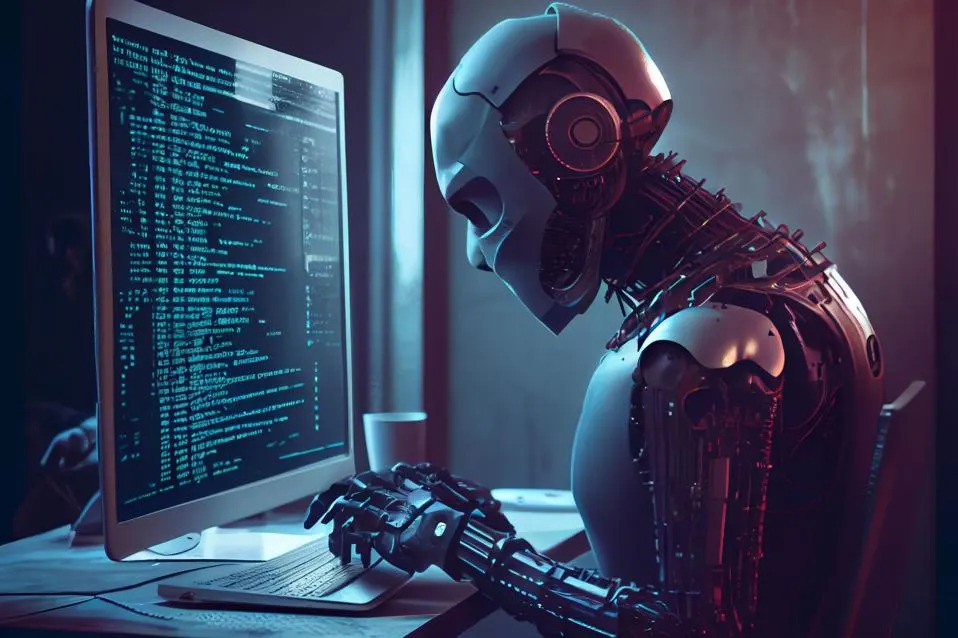In today’s era of artificial intelligence (AI), the concept of possessing superhuman abilities goes beyond jumping off cliffs. It now revolves around harnessing intelligence that far surpasses that of the human mind. As we witness the transformative power of AI systems, it raises important questions about how these developments will affect humanity and productivity.
The Industrial Revolution marked a shift in power from humans and animals to machines. Now, with the advent of AI, our world is on the verge of another significant transformation. However, we must acknowledge the potential risks and dangers associated with this technology. The media has played a role in shaping our perceptions of AI, with movies like “Terminator” instilling fear of uncontrolled artificial intelligence.

While AI has made significant strides, we are still far from the fictional portrayals we see in movies. There are numerous unknowns and uncertainties that we must grapple with as this technology advances rapidly. Scientists and experts emphasize the need for caution and collaboration with governments to ensure the responsible development and deployment of AI.
AI has become a pervasive technology in our day-to-day lives. From voice assistants like Siri and Alexa to applications in various industries, AI encompasses a wide range of technologies. It enables computers, robots, and machines to exhibit human-like intelligence, including visual perception, speech recognition, and decision-making.
The term “artificial intelligence” was coined by computer scientist John McCarthy in 1956. However, the era of industrial robots predates this, with the first robot arm joining General Motors’ assembly line in 1961. Since then, AI has reached several milestones, such as IBM’s Deep Blue defeating chess Grandmaster Gary Kasparov in 1997 and the introduction of voice assistants like Siri and Alexa.
AI has permeated numerous industries, revolutionizing technology, banking, marketing, healthcare, and entertainment. Its applications range from performing repetitive tasks to analyzing information and optimizing programs. AI-powered tools like chatbots and generative AI have empowered users to create content from scratch, including texts, images, poetry, videos, and audio. The impact of AI is evident, as it touches every aspect of our lives.
However, with these advancements come challenges. AI has led to job redundancies, causing concerns about its impact on employment and society. Renowned AI researcher Geoffrey Hinton, known as one of the “Godfathers” of AI, has expressed worries about the increasing productivity driven by AI potentially widening the wealth gap and contributing to social unrest.
Cooperation and responsible development are crucial to addressing these concerns. Hinton emphasizes the need for collaboration between countries, similar to agreements made regarding nuclear weapons. Recognizing the existential threat AI could pose, it becomes imperative to work together to ensure its safe and beneficial integration into society.
As we navigate the realm of AI, we must remain cautious, considerate, and proactive in addressing the ethical, social, and economic implications. Superhero skills may not be attainable, but the potential of AI to enhance our lives and shape our future is immense. By embracing responsible practices and fostering collaboration, we can harness the true power of AI for the betterment of humanity.
